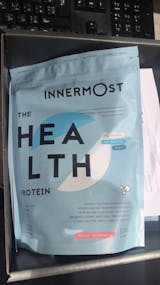Following some deep soul-searching while staring at yourself in the mirror, you've decided that you'd like to shed a few pounds. You're in the right place to learn how to safely do that.
So now that you've decided you'd like to get leaner, what's the best way to make that happen?
To lose fat, we need to be burning more calories than we're consuming. This is because our body breaks down fat stores for energy once it runs out of the available energy that we are getting from food. Once your body has burned the calories you've taken in, it begins to break down fat stores for energy instead.
While that may sound simple enough, there are some things you can do to ensure your body is working to break down fat in the most efficient way possible.
Look at your diet: what and how much?
No matter how much you work out, if your diet isn't reflecting your goals you'll find it difficult to lose fat. Focus not only on what you're eating, but also how much you're consuming.
A good way to think about thing is to calculate how long it will take you to burn 300 calories (around 30 minutes of running) compared to how long it'd take to eat them (slice of cake? Give us five seconds).
You'll make fat loss much easier by avoiding high calorie food that's low in nutrients and requires a hefty workout to burn off. Remember that the goal for fat loss is staying in a calorie deficit, so eating more than you need to will push you further away from that goal. Eat mindfully, and portion out your meals and snacks rather than eating directly from the bag.
At the same time, remember that your body needs nutritious food to function and repair, and you should never deny it what it needs. Not getting sufficient calories can be just as harmful to your body as eating too much. Opt for a diet filled with nutrient and fibre-rich fruits and vegetables, lean proteins and whole grains to help reduce fat. Avoid foods with a high sugar content, and don’t be scared of healthy fats such as avocados and olive oil as they contain omega-3 fatty acids which boost the metabolism and are essential for toned and healthy skin.
Hit up HIIT
High intensity interval training is often lauded as the ultimate fat-burning tool, and there's the science to back it up. When done properly, you can burn a large number of calories in a short period of time, with your metabolism remaining high for many hours after the workout.
HIIT involves short bursts of maximum effort exercise, followed by a recovery period. This allows your body to burn fat whilst simultaneously preserving muscle mass. Supplement with The Define Booster to ensure that your body is effectively breaking down fat for energy rather than valuable muscle.
Conquer the strength training
People often worry that strength based exercises whilst attempting to slim down will lead to unwanted bulking, but this is far from the truth. Muscle keeps your resting metabolism higher compared to stores of fat, so having a large amount of bodily muscle is guaranteed way to keep your body burning calories throughout the day.
Getting stronger will also ensure that you start looking forward to workouts rather than dreading them. Make sure to drink a protein shake after working out to aid strong muscle development - check out our The Lean Protein, which has with added functional ingredients designed to support weight loss.
Anticipate your cravings
Everyone knows what it's like to be hangry, and it's not a feeling we enjoy. The key is to avoid getting to the stage where you're so ravenous you'd happily inhale the entire junk food aisle of the nearest supermarket.
Anticipate hunger by preparing healthy snacks ahead of time, and avoiding the shopping when you're hungry. Check out The Tone Capsules, which help to stave off cravings by keeping you feeling fuller for longer without your energy levels dropping off.
Hydrate
Your body needs water to metabolise and break down fat, so ensure you are drinking at least eight glasses of water every day to keep your body hydrated. Carry a water bottle with you as you go about your day and make sure to rehydrate sufficiently after workouts.
Get enough sleep
Not getting enough sleep can lead to weight gain, so make sure you're spending plenty of time with your head on the pillow to avoid making your weight loss journey harder than it needs to be. Aim for at least seven hours of sleep every night to maintain overall health and wellbeing and reduce the likelihood your body storing unnecessary fat. Sleep will also mean you feeling more energised during exercise, and are less likely to experience cravings during the day. If you need a helping hand, The Relax Capsules have been designed to induce feelings of calm and regulate your sleep cycle, to help you get that good night's sleep each and every time.
























